#valentin zubkov
Explore tagged Tumblr posts
Text
'I'll catch you.'
I honestly like this scene better than the trench kiss. His open arms and eager face! She's afraid to take the plunge; isn't it futile to fall in love with a soldier? Everyone's bound to die.
#soviet film#USSR#russian film#andrei tarkovsky#Ivan's Childhood#Valentin zubkov#valentina malyavina#war film
39 notes
·
View notes
Text
The Cranes are Flying (1958)
Immediately after our viewing of Soy Cuba, my viewing companion started reading about the director, Mikhail Kalatozov, and discovered that he had also previously directed Letyat zhuravli (The Cranes are Flying), and that it had won the Palme d’Or at Cannes in 1958. We checked to see if it was on the Criterion streaming service and discovered that it was, and immediately made plans to watch it as…

View On WordPress
#Aleksandr Shvorin#Aleksey Batalov#drama#mark boomer redmond#Mikhail Kalatozov#reviews#soviet russia#Tatiana Samoilova#the cranes are flying#Valentin Zubkov#Vasili Merkuryev#war
1 note
·
View note
Text



#ProyeccionDeVida
🎥 MosFilm 100, presenta:
🎬 “LA INFANCIA DE IVÁN” [Ivanovo detstvo / Ivan's Childhood]

🔎 Género: Drama / Bélico / II Guerra Mundial / Espionaje / Infancia / Nazismo
⌛️ Duración: 95 minutos
✍️ Guión: Vladimir Bogomolov y Mikhail Papava

🎵Música: Vyacheslav Ovchinnikov
📷 Fotografía: Vadim Yusov
🗯 Argumento: Segunda Guerra Mundial (1939-1945) Frente Oriental; Iván, un niño ruso de doce años, cuyos padres murieron durante la invasión nazi, trabaja espiando a los alemanes.

👥 Reparto: Valentin Zubkov (Kholin), Nikolái Burliáyev (Ivan), Andréi Konchalovski (Soldado con anteojos), Nikolai Grinko (Gryaznov), Irma Raush (Madre de Ivan), Yevgeny Zharikov (Galtsev), Stepan Krylov (Katasonov), Valentina Malyavina (Masha) y Dmitri Milyutenko (Anciano).
📢 Dirección: Andrei Tarkovsky

© Productora: Mosfilm
🌎 País: Unión Soviética (URSS)
📅 Año: 1962

📽 Proyección:
📆 Martes 10 de Setiembre
🕖 7:00pm.
🏪 Cine Club de la Universidad de Ciencias y Humanidades (av. Bolivia 537 - Breña)
🚶♀️🚶♂️ Ingreso libre con DNI.
0 notes
Photo
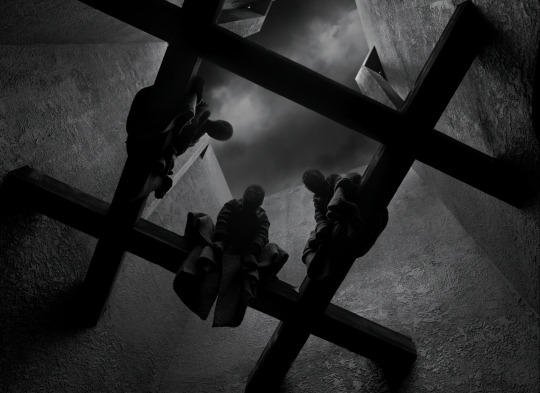
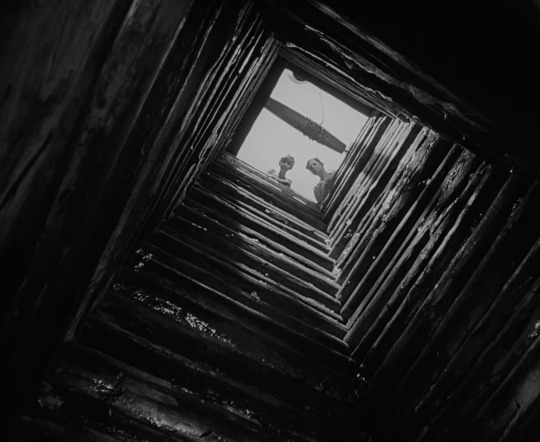
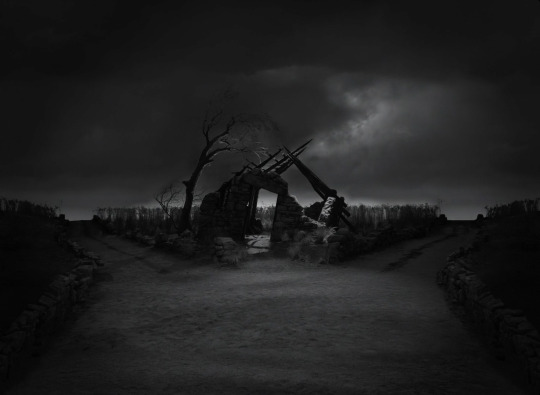
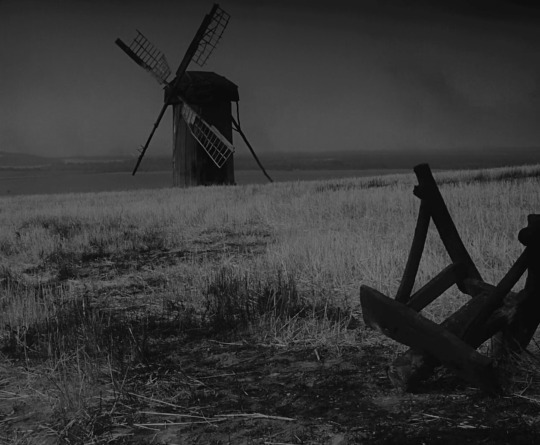
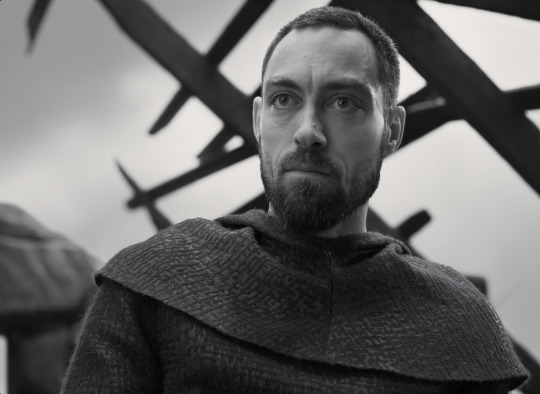
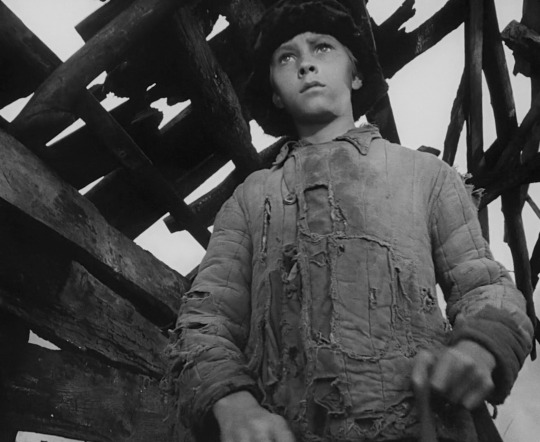
The Tragedy of Macbeth (2021) / Ivan’s Childhood (1962)
#the tragedy of macbeth#joel coen#denzel washington#frances mcdormand#ivan's childhood#andrei tarkovsky#nikolai burlyaev#Valentin zubkov
33 notes
·
View notes
Photo










The Cranes Are Flying (1957)
#the cranes are flying#mikhail kalatozov#tatyana samoylova#aleksey batalov#vasili merkuryev#aleksandr shvorin#valentin zubkov#talks
66 notes
·
View notes
Text










Ivan's Childhood (1962)
Director - Andrei Tarkovsky, Cinematography - Vadim Yusov
"Mamma, there's a cuckoo up there!"
#scenesandscreens#Ivan's Childhood#Andrei Konchalovskiy#Irma Raush#Valentina Malyavina#Dmitri Milyutenko#Nikolai Burlyaev#Valentin Zubkov#Evgeny Zharikov#Stepan Krylov#Nikolai Grinko#andrei tarkovsky#Vadim Yusov
261 notes
·
View notes
Photo

Ivan’s Childhood | Andrei Tarkovsky | 1962
Valentin Zubkov, Valentina Malyavina
#Valentin Zubkov#Valentina Malyavina#Andrei Tarkovsky#Tarkovsky#Ivan’s Childhood#1962#Ivanovo detstvo#Obligatory
169 notes
·
View notes
Photo

It’s hard to believe, but it’s not a poster for Soviet ‘Brokeback Mountain’.
#three came out of the woods#трое вышли из леса#valentin zubkov#mikhail pogorzhelsky#lidiya smirnova#back to the commie era
3 notes
·
View notes
Photo





Ivanovo detstvo (1962) // dir. Andrei Tarkovsky
#Evgeniy Zharikov#Valentin Zubkov#ivanovo detstvo#Ivan's Childhood#Andrei Tarkovsky#my caps#my edits#*ivanschildhood
36 notes
·
View notes
Photo
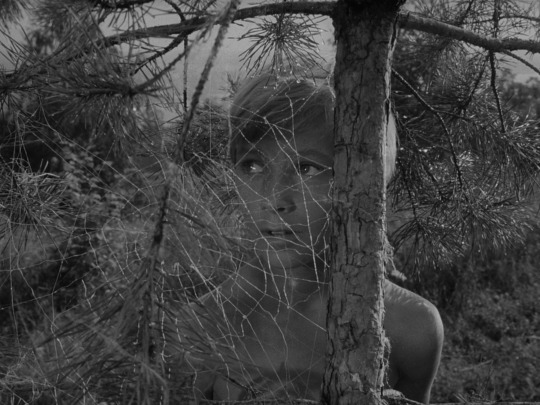

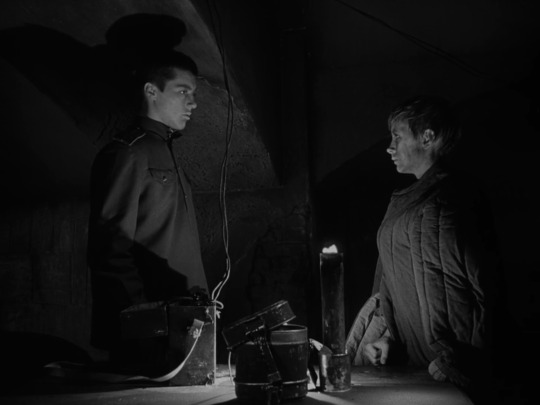
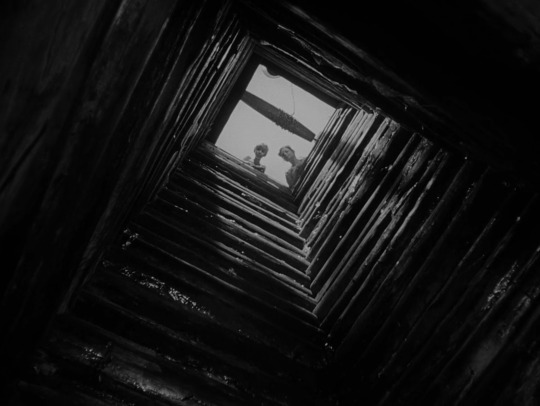
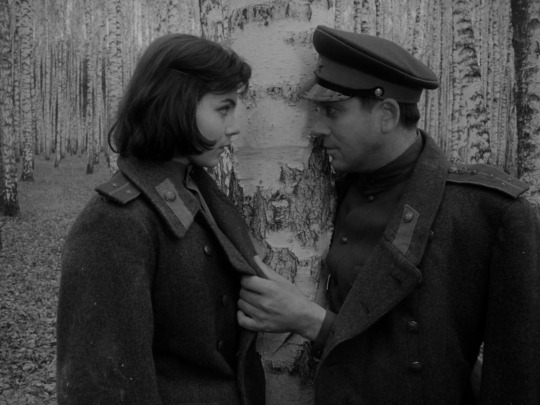
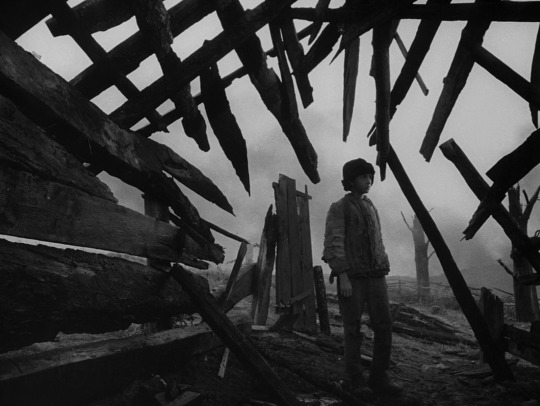
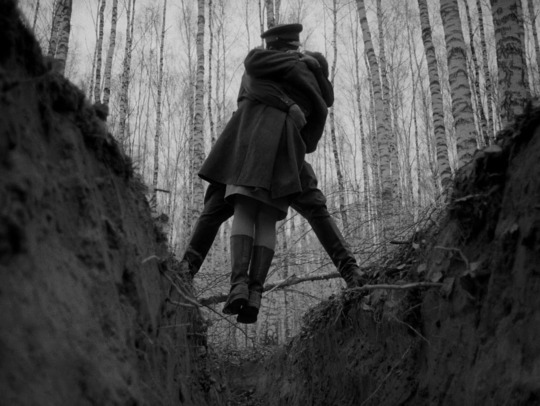
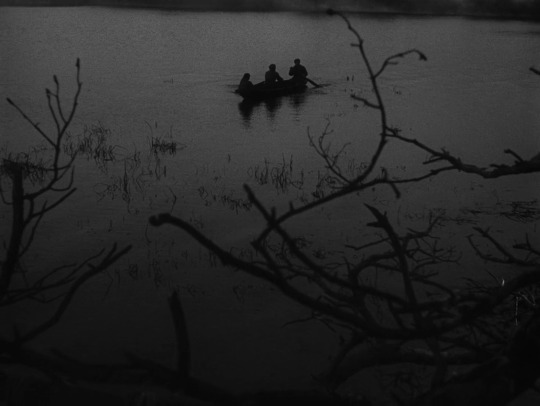
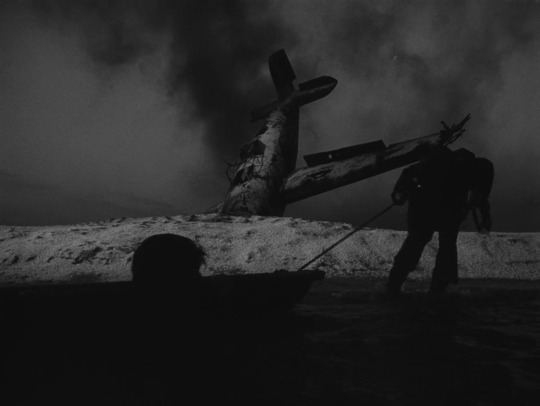
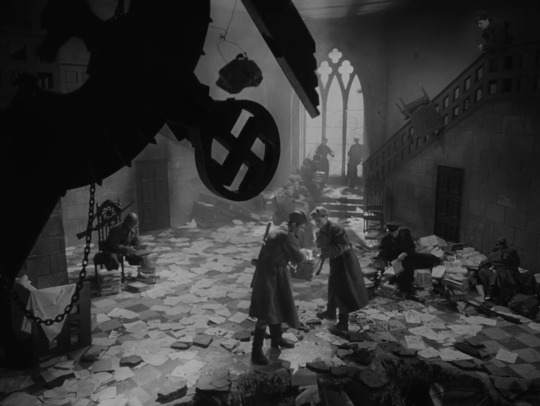
Ivan’s childhood (1962)
#film#l'infanzia di ivan#Ivanovo detstvo#ivan's childhood#tarkovskij#tarkovsky#Иваново детство#russia#cinema#Nikolaj Burljaev#Valentin Zubkov#Evgenij Žarikov#Mykola Hryn'ko#Stepan Krylov
30 notes
·
View notes
Text
#andrei tarkovsky#Ivan's childhood#Valentin zubkov#valentina malyavina#soviet film#ussr#the way he pulls on her lapels 🫠🫠#truth is... the Captain was kinda selfish. but i think he knew everyone was doomed and they might as well relish in some humanity.#my personal opinion
8 notes
·
View notes
Photo
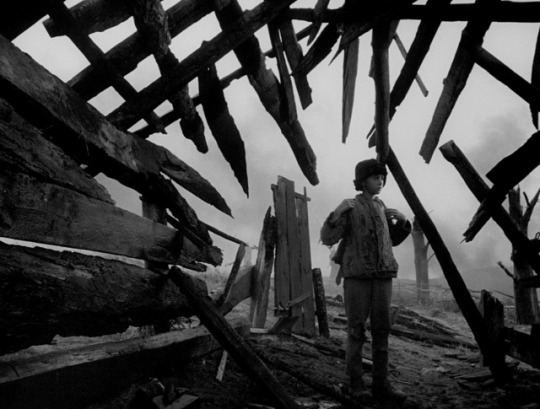
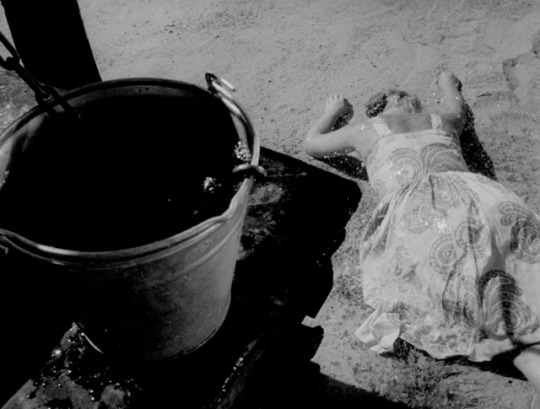
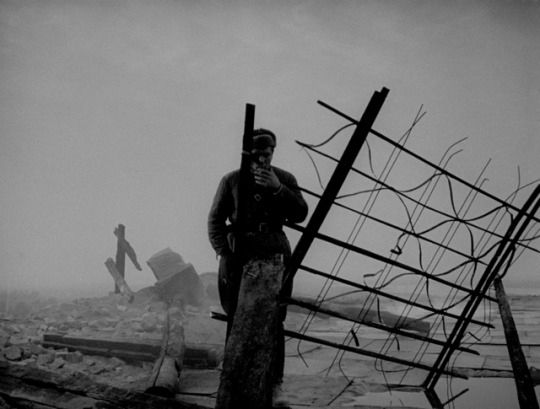
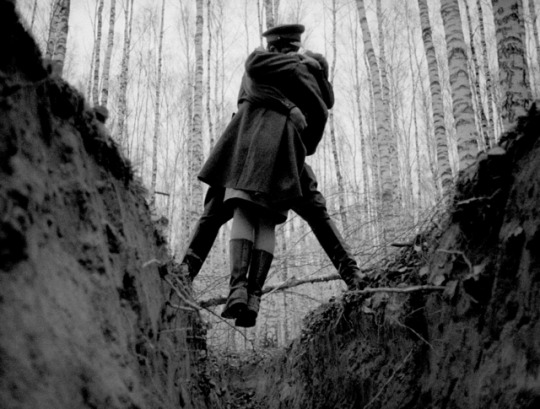
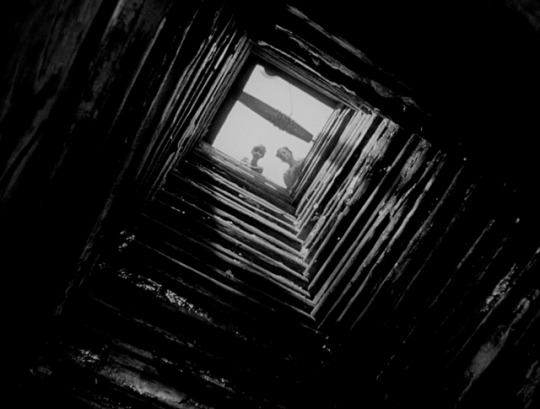
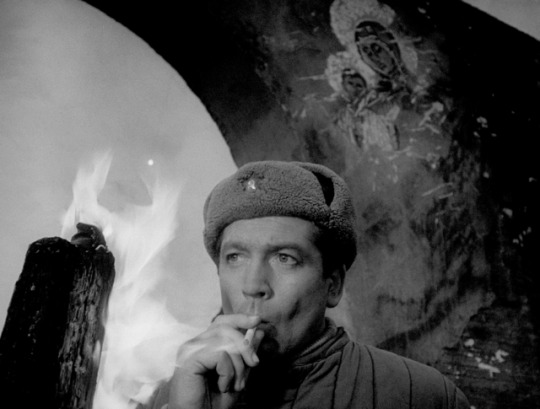
Ivan's Childhood (1962) Dir. Andrei Tarkovsky
#ivan's childhood#andrei tarkovsky#60s#photo set#large#black and white#Nikolay Burlyaev#Valentin Zubkov#Evgeniy Zharikov
635 notes
·
View notes
Photo

If a well is really deep, you can see a star down there even in the middle of a sunny day.
Ivan's Childhood (Ivanovo detstvo), Andrei Tarkovsky (1962)
#Andrei Tarkovsky#Mikhail Papava#Nikolay Burlyaev#Valentin Zubkov#Evgeniy Zharikov#Stepan Krylov#Nikolay Grinko#Dmitri Milyutenko#Valentina Malyavina#Irina Tarkovskaya#Vadim Yusov#Vyacheslav Ovchinnikov#Lyudmila Feyginova#1962
4 notes
·
View notes
Text
De Spiegel
Recensie De Spiegel (The Mirror) ☆☆1/2 - nu in de bioscoop en vanaf 8-10 ook op Ddv, Blu-Ray en lumiereseries.com Aleksei krijgt een zenuwinzinking, waardoor hij zijn ongelukkige jeugd herbeleeft. @EYE_film @LumiereBeNL @ThePublicityCy #DeSpiegel
De biografische dramafilm De Spiegel (The Mirror) gaat over een zenuwinzinking van Aleksei. Door die inzinking herbeleeft hij zijn jeugd, wat niet de meest fijne jeugd was. Wat wij van De Spiegel vinden, lees je in onze recensie.
(more…)
View On WordPress
0 notes
Photo

Ivan's Childhood (1962) Andrei Tarkovsky 06-07-2018 Great mise en scene and cinematography with a compelling story and affecting ending
#ivan's childhood#1962#andrei tarkovsky#soviet union#nikolay burlyaev#valentin zubkov#evgeniy zharikov#valentina malyavina
1 note
·
View note
Text
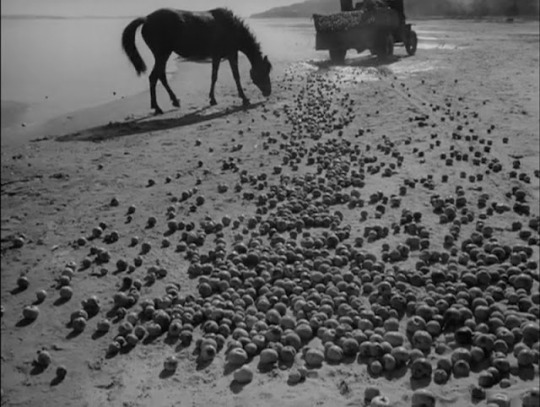
Ivan's Childhood (Andrei Tarkovsky, 1962)
Cast: Nikolay Burlyaev, Valentin Zubkov, Evgeniy Zharikov, Stepan Krylov, Nikolay Grinko, Dmitri Milyutenko, Valentina Malyavina, Irina Tarkovskaya, Andrey Konchalovskiy. Screenplay: Vladimir Bogomolov, Mikhail Papava, based on a story by Vladimir Bogomolov. Vadim Yusov. Production design: Evgeniy Chernyaev. Film editing: Lyudmila Feyginova. Music: Vyacheslav Ovchinnikov.
There are scenes in Ivan's Childhood that would work in the hands of only Andrei Tarkovsky. The famous scene in the birch forest, in which Kholin (Valentin Zubkov) straddles a trench and kisses Masha (Valentina Malyavina) while dangling her over it is completely extraneous to Ivan's story, as are almost all the scenes in which Masha, the physician's assistant, appears. And Tarkovsky never falls into the trap of sentimentality in the dream sequences, including the film's ending. In fact, I think it's a mistake to call them "dream sequences" -- they mostly avoid the conventions of movie dreams like odd angles or camera tricks or surreal elements. They're really memory pieces, explorations of the other side of Ivan's childhood, the innocent years of peace, poetically interpolated into the harshness of war. In fact, the "real" sequences are often more dreamlike than the memories: the dizzying ghostlike trunks of the birch trees, the flares falling silently like meteorites, the spiky war ruins that threaten to impale. It's a heartbreaking film because Tarkovsky refuses to pull out all the melodramatic stops but lets his images speak for themselves and because Nikolay Burlyaev performs with such conviction as Ivan, in one of the greatest performances by a child ever captured on film. It's probably the most poetic war film ever made because the war recedes into the background as a thing remembered.
1 note
·
View note